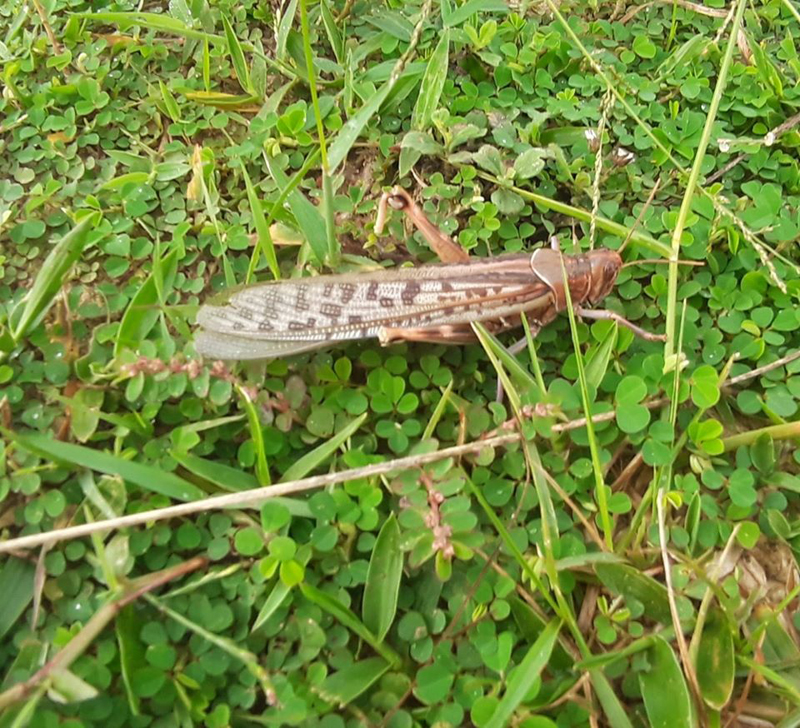Govt claims to have strategy against locust outbreak
KATHMANDU, JUNE 28
The Ministry of Agriculture and Livestock Development held a press meet today to inform about the government’s preparations to prevent the outbreak of locusts in the country. A few groups of locusts have been seen in the country since Thursday night and the government has claimed that they have come up with some sort of strategy to minimise the possible risks that the insects could create.
While addressing the meet today, Sahadev Humagain, chief of Plant Quarantine and Pesticide Management Centre and coordinator of the taskforce formed to study the possible impact of locusts, said that the locusts entered the country after the wind changed direction and the insects might have low impact during the monsoon. Even prior to this the taskforce had reported that locusts might not enter the country as the monsoon was about to begin.
However, contrary to what the taskforce said the locusts have entered the country and now the MoALD is again saying that they might not have large scale impact as the monsoon has begun.
Responding to this, Navaraj Basnet, president of Nepal Farmer Group Federation, said that instead of relying on how the weather could lessen the impact of the insects the government should start taking necessary action. “Earlier too the government had said locusts will not enter the country but they did and now again the government is saying it will have low impact,” he stated. “We can’t remain silent saying only small groups have entered and will not have an impact on our crops as it is the monsoon season.”
The NFGF issued a statement today requesting the government not to waste time and take immediate action on minimising the number of locusts when they are still less in number.
“If the number increases it will be difficult for us so it would be better to minimise it when the group of locusts is small,” Basnet added.
He further said that the country is under the threat of food crisis.
Meanwhile, Humagain claimed that the taskforce’s report had stated there was less probability of locusts entering the country however it had recommended the government to be prepared if they do enter. “Of course the risk is high. However, as per our study the groups of locusts are travelling continuously and not affecting crops so far,” he said, adding, “In some areas locusts have eaten maize, however the damage is very less.”
He further said that the amount of damage caused by locusts is yet to be ascertained.
“Locusts are passive during rainfall and in most areas there has been incessant rain, thus, we have assumed that the locusts might have less impact on corps,” he added.
However, the risk is high so we have to prevent other groups from entering the country, Humagain added. As per him, a large swarm of locusts have travelled to Delhi from Rajasthan in India due to which Nepal is also at risk. “Thus, we have mobilised our technicians and started spreading awareness among farmers,” he said.
Moreover, using pesticides to prevent the locusts can cause health problems. Hence, the government has to take each step cautiously and stakeholders are holding discussions on possible measures to contain the spread of the locusts, he added.
A version of this article appears in e-paper on June 29, 2020, of The Himalayan Times.






